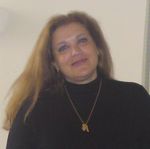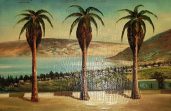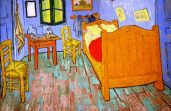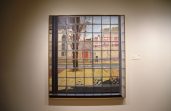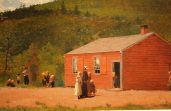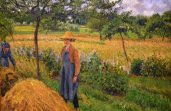The Reading List
“For the aim of this book is pleasure. I have never read a book or thought about a subject except for pleasure. Sometimes it is an athletic sort of joy, like a game of tennis, or hunting on a cold, wet day, but if I didn’t enjoy it, I wouldn’t do it. I do my duty earning bread. Reading and thinking are my own. I am the one to be pleased in these things, and so are you.”
~ Cornelius Hirschberg ~
It has often been said that in order to be truly literate, in the Western World, one must have knowledge of the Bible and Shakespeare. If you have ever watched Jeopardy, you might well agree with the notion. For years, I kept at least one reading list. One of my small and insignificant accomplishments was to finish a reading list, of Spanish Literature, given to me by Professor Gonzales, during my freshman year of college – it took quite a few years, but it was well worth the efforts; and I actually do remember the day, in Maine, when I looked at the list, and realized I was done!
Is there a master reading list? Are there must read books? The books listed below are all in my library; and each in one way or another purposes to have such a list.
The Priceless Gift, by Cornelius Hirschberg, Simon and Schuster, New York, 1960
Cultural Literacy, What Every American Needs to Know, by E. D. Hirsch, Jr., Vintage Books, New York, 1988
The Great Conversation, A Reader’s Guide to Great Books of the Western World, Published by Robert P. Gwinn, Encyclopedia Britannica, Chicago, 1992
The complete Idiot’s Guide to The Ultimate Reading List, by Shelley Mosley, John Carles, Joanne Hamiliton-Selway, and Sandra Van Winkle, Alpha Books, New York, 2007
At various times, I have taken down these books and looked through their recommendations, and been thrilled to occasionally find a few titles, which I had read. All suggest that there is a body of “classics” which one should read; however, the notion of what should be included in the classics is quite diverse. The complete Idiot’s Guide to The Ultimate Reading List has the most interesting list of classics, including: Hotel, by Arthur Hailey, 1965, Divine Secrets of the Ya-Ya Sisterhood, by Rebecca Wells, 1996, and Along Came a Spider, by James Patterson, 1993. In all due fairness, the book is divided into multiple categories, with a wide variety of suggestions, but it is shocking to me that their notion of classics barely mentions the nineteenth century, and certainly does not acknowledge anything before that time.
When did pulp fiction become “the classics”? Yes, there is some very contemporary fiction which has earned its place as literature and will or is an instant classic, but I do not see Bridget Jones Diary, in that category.
When I think of the classics, I think of: Homer, Sophocles, Aristophanes, and Euripides, and of Virgil, Plutarch, and Ptolemy, or Chaucer, Hobbes, and Shakespeare, and Moliere, Locke, and Voltaire, as well as Hamilton, Madison, and Jay, or Eliot, Dickens, and Melville, and Tolstoy, Dostoevsky, and Isben, and Shaw, Conrad, and Chekhov, and Lawrence, Kafka, and Eliot, as well as O’Neill, Fitzgerald, and Faulkner, not to mention Hemingway, Orwell, and Beckett!
Perhaps I missed one, but none of the above is even listed in the Idiot’s Guide, and I wrote out the list, before looking in the Idiot’s Guide. Does it matter that we no longer read “older” literature and history? I think it may. I am not disparaging popular culture, current events, or even popular fiction, but is there not a body of knowledge which we should at least be familiar with, even if we have not mastered it?
In the pursuit of knowledge, one can not ignore what is newly discovered. It is said that our field of knowledge is doubling faster now than ever before, almost every two years in some disciplines. Fuller’s “Knowledge Doubling Curve” states that the increase of knowledge creates the path for knowledge to increase even faster. Once you know that eggs can be eaten, you then begin to discover the many ways which eggs can be eaten. For example, you discover the omelet. Once knowing that an omelet can be made, you begin to discover the many different kinds of omelets which can be created, the different ways the omelet can be created, and the different methods which can be used to create an omelet, and on it goes. Obviously, it would be impossible to keep up with all current knowledge that is available. However, the question of the standard of classic knowledge remains. Should we, as a society, have a master reading list?
Is there a classical measure of knowledge which a literate individual should possess? In Cultural Literacy, Hirsch quotes a rather long passage from a Benjamin J. Stein’s Washington Post article, where the author speaks of interviewing students in Los Angeles, none of whom can tell him the years that the American Civil War, World War I or World War II were fought. He goes on to mention the students not knowing how many senators Nevada or Oregon have; a pre-law student, at USC, who believes that Washington D.C. is in Washington State. Concluding: “The kids I saw (and there may be lots of others who are different) are not mentally prepared to continue the society because they basically do not understand the society well enough to value it.” (p.7) It is quite an indictment. How did we arrive at such a place?
In the burned and banned Emile, which ultimately led to his demise, Jean-Jacques Rousseau purported how best to educate the “natural man”, who Rousseau introduced us to in The Social Contract. He believed that what matters in education is not the knowledge obtained through books, but rather our interaction with our own nature and the natural world, which will almost by osmosis lead us to knowing. Odd, as reading was such an important aspect of his childhood and the brief time he shared with his father.
Rousseau said that man was born in a perfect state, and that it was the educators job to shield the child, as it passed through various stages of development, forming its own conclusions. A child should explore and a teacher should ensure that the exploration was without the burden of society and its notions of what matters.
Immanuel Kant put forth the idea that man cannot acquire knowledge as it is impossible to know in the absolute. Reason with out experience leads to illusion and experience is purely subjective without reason. He believed that your thoughts should flow independently of others observations. Kant preached that emotion is truth. Knowledge was not what mattered but rather creativity and our natural state. He believed in the purity of the child, untouched by society and free to grow, on its own, as its natural state dictated.
By the twentieth century, the notion of a progressive education which centered on allowing a child to explore and develop, as opposed to memorize or study had taken root in America. John Dewey believed that the mind existed in its own state, and was limited to its own subjective experiences. He believed that education should adapt to the child, guided by its natural interest and circumstance, and not by a set curriculum. The teacher was to help guide the student, in a hands on learning process, and not merely instruct. The child would then discover the value, of the knowledge being put forth, based on its prior experience. One is left to wonder how much experience a five year old has?
Our public schools sought to be intellectually inclusive by removing intellectualism, perhaps I am over stating. But it seems that the mantra became there are no wrong answers: How do you feel about the story? Not what is the author trying to say? One is a simple opinion; the other requires thought and exploration, with conclusions being supported by the text. The opinion then became why do we have to study any of this?
Beside his very prolific, original contributions to the body of world knowledge, Beginning in 1169, and for the next 26 years, Ibn Rushd worked in Cordoba, translating Aristotle from Greek to Arabic, which led to translations in Latin, and to the western world’s rediscovery of his thoughts. Why would you spend 26 years of your life translating work from an author who had died in 322 B.C.? What Aristotle had to say must have had value to Ibn Rushd, to the awaking western world, and to those who hundreds of years later thought he should be read and understood – yet Aristotle does not even come close to being represented in The complete Idiot’s Guide to The Ultimate Reading List. How can a reading list be complete without Aristotle, while the classic Bridget Jones Diary is a must read?
Should we know if Socrates taught Plato and Plato Aristotle, or if it was the other way around? Yes! (Socrates was Plato’s teacher, and Aristotle was Plato’s student.) We cannot master all that there is to know, in fact we can barely begin to know only the tiniest fraction of what is known, but I do believe that we should expect our children to be able to find Washington D.C. on a map, and be aware of when World War II occurred – which no one is going to learn by reading Blame It on Chocolate.
I am not suggesting that our reading list should not include popular fiction, quite the opposite. One should be aware of contemporary writers, stay abreast of new literary trends, and enjoy a good read because it is simply that; but as you are putting together your reading list, step back and think about some of those great books which you always wanted to read or heard about, and make room for a real classic or two. That is all for now.
http://www.project22.com/double-your-knowledge

